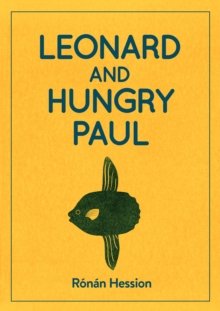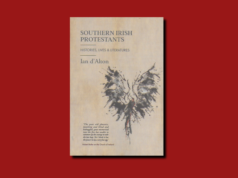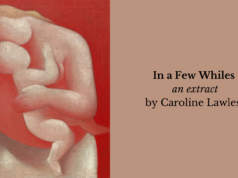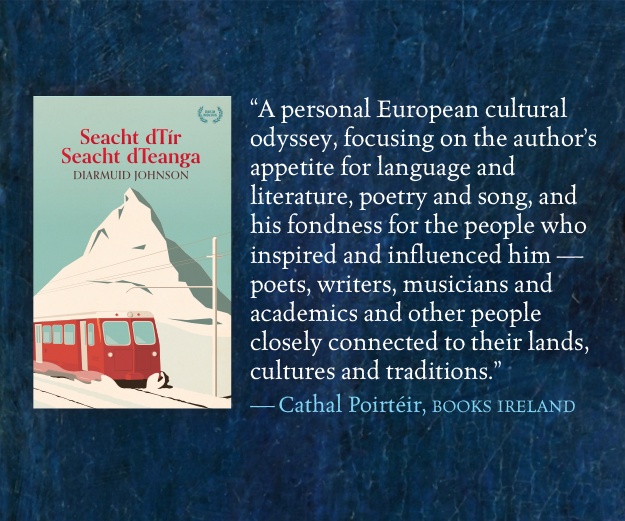
Andrea O’Brien explores the process and magic involved in translating Leonard and Hungry Paul, by Rónán Hession into German
By Andrea O’Brien
When I first encountered Leonard and Hungry Paul – as a reader – I was immediately impressed by the gentle humour that suffused it.
Although there are no explicit markers that locate the story in Ireland, its tone, approach and the mentality of its characters were immediately familiar to me. When I lived in Ireland, I was impressed by the kindness of Irish people, something that struck me as remarkably different from Germany. Even when they banter and joke, Irish people are rarely out to hurt anybody.
Kindness
Kindness is an essential element of Rónán Hession’s writing. He may portray his characters’ particular flaws with humour, but he never treats them with disdain or disrespect. When I set out with my translation, I was acutely aware of the need to find an appropriately gentle tone and language that avoided sarcasm, confrontation or offence.
Incidentally, a fellow translator recently asked me how I would translate the word “kindness” in a modern novel. The question arose because the German word for kindness (“Güte”) is perceived as somewhat old-fashioned and dusty, especially when used as an adjective (“gütig”).
a fellow translator recently asked me how I would translate the word “kindness” in a modern novel.
The conversation made me wonder whether the fact that this (German) word was perceived as outdated meant that we as a society perceived the notion of kindness itself as an anachronism. While I was translating Rónán Hession’s novel however, I used the words “Güte” and “gütig” without hesitation or second thought, and I find it very apt that such a gentle word that has been reduced to a niche existence in modern German vernacular lent itself so naturally to this particular novel.
Narrative flow
One of the many strengths of Hession’s prose is its easy narrative flow. Rooted in the Irish storytelling tradition that I find characterises so much of the nation’s writing, Hession’s novel encourages us to sit back, relax and enjoy. But to equate this unassuming simplicity with triviality would be a mistake.
There is a lot at work here. While the author’s sentences appear straightforward at first sight, they often convey a deeper sense of wisdom or invite us to take a refreshingly new approach to what we thought we knew about the world.
In order to reproduce this understated and skilfully crafted flow in the German translation, I called to mind the subtle and not so subtle differences between German and English syntax, how word order and structure changes the tone and emphasis of a sentence and also plays with conventions and the reader’s expectations.
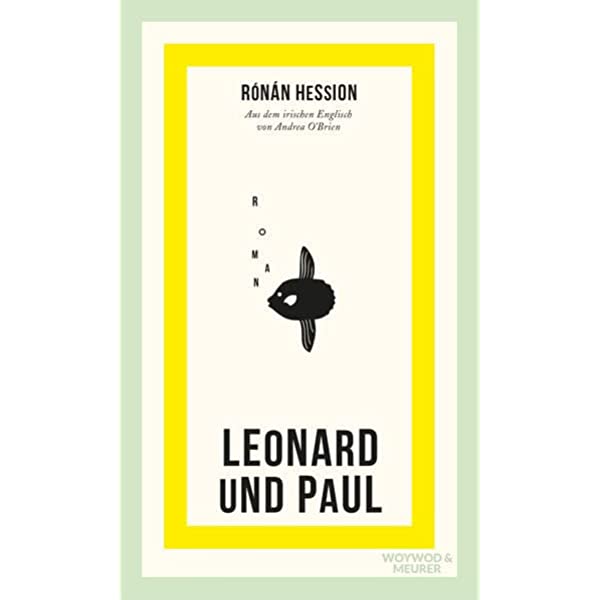
Magical
Like all literary translators I work with a set of tools that I have collected over many years of experience, studying, reading and learning. But this technical knowledge only takes you so far. It is the creative act, the flow, the many unreflected micro-decisions that produce art. And “the flow” is, by its very nature, not a rational process. We can analyse the result, but it is hard to explain how we got there in logical or technical terms. Literature translation is, like writing itself, a deeply empathetic, sensual and intuitive process.
The process can be dissected, but its workings will not be revealed. It’s all a bit magical, really.
Just as prose or poetry are so much more than the sum total of their words and phrases, successful translation goes beyond the mere transfer of words or sentences from one language into another. The process can be dissected, but its workings will not be revealed. It’s all a bit magical, really.
Challenges
That said, of course there were passages in Leonard and Hungry Paul that required reflected, conscious decisions. How to translate the different phrases listed by the Chamber of Commerce and with it, the conundrum of how to sign off an e-mail? In German, we do not use phrases like “To whom it may concern” or “Dear Sir or Madam” – our conventions are very different and so are the “problems” that are associated with them.
How to proceed? Use the English phrases and explain the conundrum in German? After a moment of reflection I decided that I needed to find equivalent German phrases, and realised – much to my delight – that many of these German phrases also threw up an array of very similar “problems”.
A major challenge was, of course, Paul’s delightful winning phrase. In the German translation, it had to meet the criteria of “pointing out the noteworthiness” of the preceding paragraphs and inviting the reader to consider them while “also leaving the door open if the reader felt otherwise”.
It took me a while to find my personal winner, the German phrase that covered all the bases, and it came to me – as is often the case – during a walk in the park. Obviously, I will reveal neither the original nor the German translation.
Lucky coincidences
It is my experience that many challenges that I may initially perceive as difficult are easily solved as soon as my unconscious translation process is in full flow. And while some layers of the original may become lost in translation, others can actually be gained.
One such example is the term “fire warden”, which in the original is a straightforward term that may or may not conjure up the vague image of an official. The surprise (and humour) comes from the fact that it is a girl that does the job of carrying out fire drills and she looks anything but what you would expect of a fire warden.
The discrepancy between the readers’ expectations and the revelation is so much stronger and the humorous surprise much more pronounced.
The German translation (and humour) also works along these lines, but the German word for fire warden (“Brandschutzbeauftragte”), in its wonderfully German officialese, conjures up a much more vivid image: that of a grey-haired, bespectacled no-nonsense (German) official.
The discrepancy between the readers’ expectations and the revelation is so much stronger and the humorous surprise much more pronounced. Lucky coincidences like these delight us translators and help us achieve a creative balance between the original and the translation.
I am very happy that Leonard und Paul was received by German readers with as much enthusiasm as Leonard and Hungry Paul was in Ireland, because it means that the translation managed to capture the essence of what makes Rónán Hession’s novel so immensely enjoyable.







